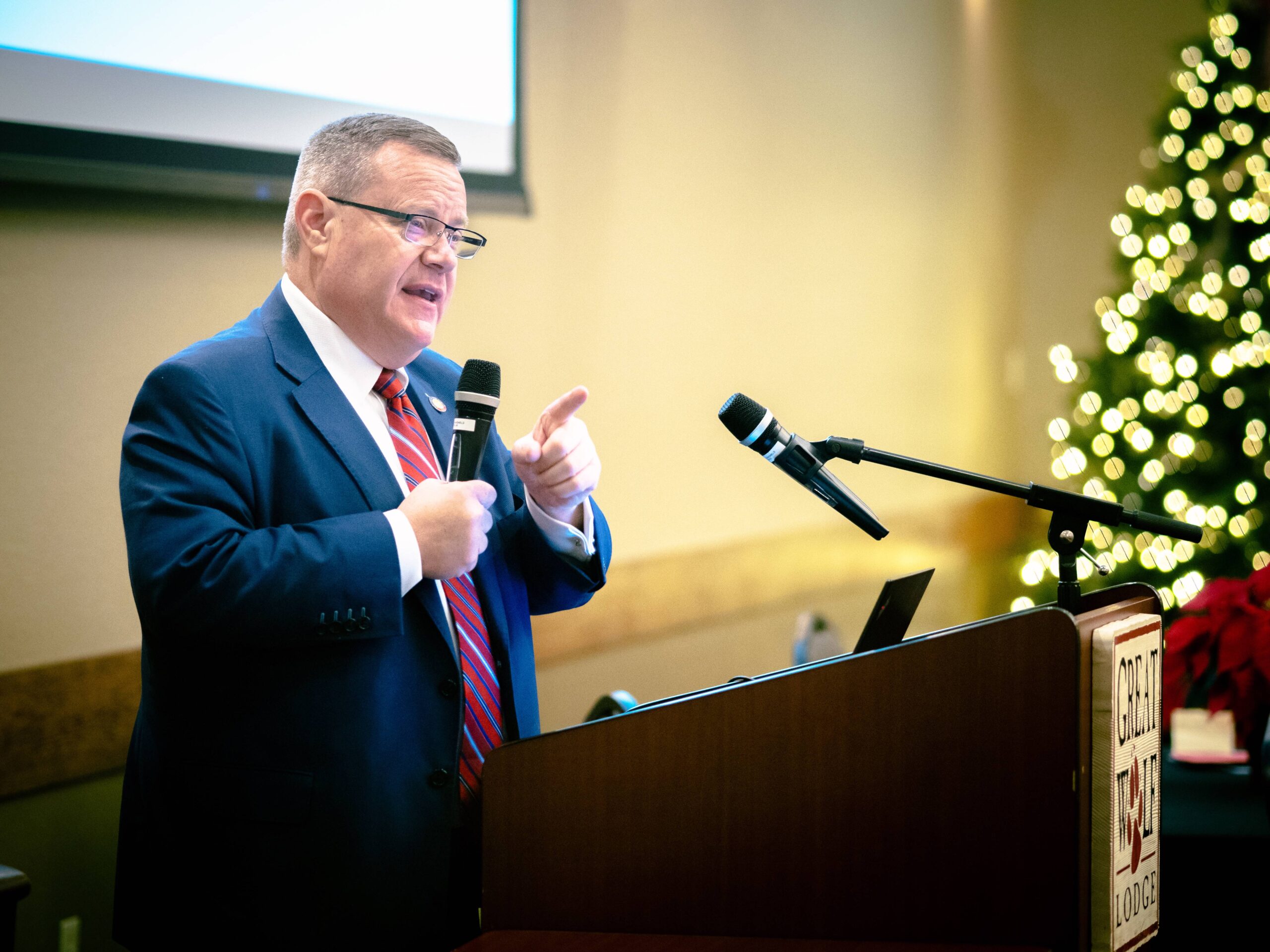No single legislative session is ever like another, and the 2024 session promises to further confirm that truism.
For North Carolina cities and towns, that may not be a bad thing. That’s because this year’s session may be heavily shaped by electoral politics, which could translate to less focus on the policy areas that typically worry municipal officials, such as pre-emption of land-use regulation.
As we move into a presidential election year, how that national race shapes up—and the issues that come to the fore—could well dominate discussions in Raleigh, even if some have limited relevance to state policy and the General Assembly’s ability to move the needle. The main issues that capture voters’ attention in statewide races for governor, attorney general and other executive offices might also become rolled into legislation, as political allies of the candidates seek to play up any political advantage.
But what may set this year’s legislative session apart from those during previous presidential election years is that leadership change is coming to the state House. After five terms as Speaker of the House, Cleveland County Rep. Tim Moore will not seek re-election and is running for Congress in the state’s 14th Congressional District, covering all or parts of six counties stretching from Charlotte into North Carolina’s foothills.

Moore and his key lieutenants in the House, including current House Rules Committee Chair Destin Hall and Majority Leader John Bell, have sought to head off the sort of chaos seen in Washington when power transitions take place. His leading allies, rather than fighting among themselves for the job of House Speaker, instead have agreed to a slate of leadership positions for 2025, assuming Republicans maintain their majority after the election.
That agreement would have Hall become the House Speaker and Bell move into the second most powerful position in the House, chair of the Rules Committee. (That is the case because the Rules Committee chair, typically in conjunction with the Speaker, determines when, how, and if bills are considered.)
Hall told Spectrum News that the agreement came after a lot of discussion among several legislators. “We were confident that we could avoid the kind of problems that they’ve had in D.C.,” Hall said.
Meanwhile, other key positions have also been decided, and the slate appears to have the backing of a strong majority of House Republicans.
“Appears” is the keyword in that sentence. As a famous Scottish poet of the 18th Century once wrote, such plans do go oft awry, leaving the planners, like mice in a plowed field, to scurry about in “nothing but pain and grief.”

The chance of the plan falling through may be slim. Regardless, that looming succession and Moore’s pending departure will color the legislative session.
How that plays out is anyone’s guess. When U.S. Sen. Thom Tillis gave up the House speakership to run for U.S. Senate in 2014, it became more difficult for him to control the flow of legislation and the House caucus generally, as candidates seeking higher office are loath to anger caucus members and block their favorite causes.
That tendency can be counter-balanced by a desire to avoid controversial issues when an election looms and legislators in swing districts want to avoid such votes at all costs.
At the same time, issues that become lightening rods of public attention—particularly those that poll well across different demographic and partisan groups—can find their way into state legislation. Known as “run-on bills,” in 2024, they could cover topics ranging from immigration to energy affordability, even if the policy changes proposed bring few changes.
What does all this mean for cities and towns, and their policy priorities?
That is difficult to predict, just as difficult as predicting political outcomes that will be decided months from now.

Backing away from those political dynamics, though, there are a number of factors suggesting that the legislative session may play out without a lot of substantive policy issues becoming law, especially those considered in bills separate from the state budget.
The even-numbered year “short session” limits legislation considered largely to bills with appropriations, bills that passed one legislative chamber or the other in the first year of the biennium, and local bills.
When it comes to bills that “crossed over,” passing either the House or the Senate last year, there simply are not many in that category affecting cities and towns that have any real political heft behind them. One that might move this session, and that involves a policy goal of cities, is HB 588 Heirs Property Study. The legislation seeks to explore ways to better resolve “tangled titles” that leave property owners vulnerable to fraud and some properties vacant and blighted. Pension retirement issues also are always ripe for discussion, and an ABC system reform bill is again in the mix for 2024.
Local bills are not subject to the same limitations as other legislation, and this year marks a change that city officials will want to note: The submission deadline for these bills will precede the reconvening of the General Assembly, so you will want to be in discussions with your legislators regarding any needs for local legislation now. The deadline to submit these bills to legislative bill drafting is April 15 at 4 p.m.
In recent years, legislators have used the state budget bill as a vehicle for state policy changes, and that is a trend that is likely to continue. But in a short session and major election year, budget writers will probably steer away from the most controversial policy provisions.
Worth watching is whether the state Senate again pursues more comprehensive gambling legislation, in the wake of changes allowing sports betting and the establishment of the Catawba casino in Catawba County. Last year’s effort to create a handful of additional state-sanctioned gambling districts, which eventually failed, was largely responsible for delaying the passage of a state budget in 2023.
As always, there will be twists and turns ahead that no one can anticipate. But NCLM’s very capable Government Affairs Team will be there to monitor it all, calling on its best tool—the municipal officials of the League membership—when it is most needed to gain the best outcome for North Carolina’s cities and towns.













